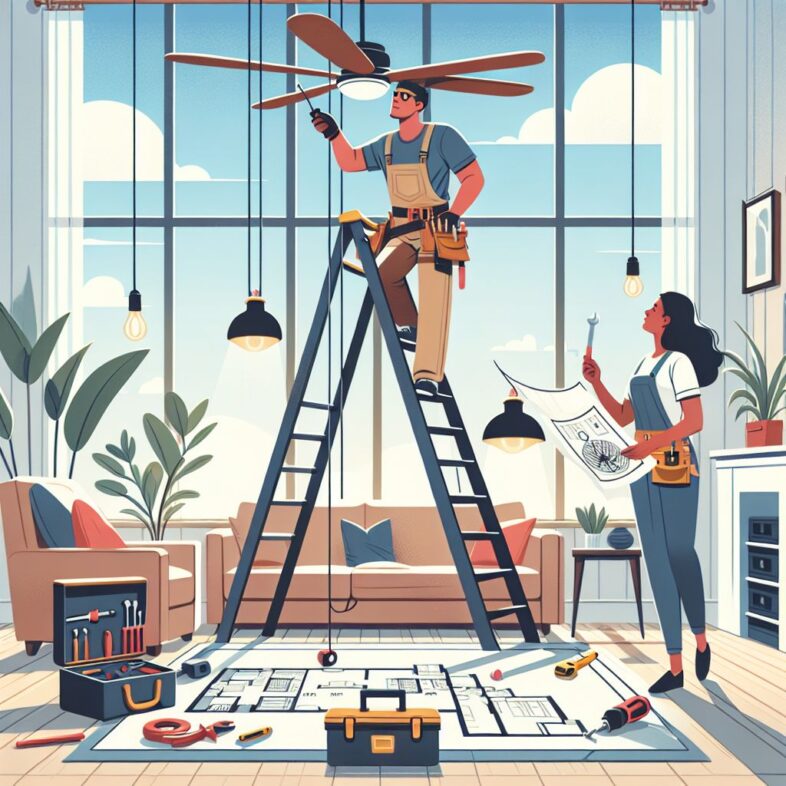When it comes to home safety, being aware of unusual noises from your furnace is crucial. A banging noise might seem harmless at first, but it can indicate a serious issue that requires immediate attention. Understanding the causes and knowing how to address them can save you from costly repairs and ensure your home remains a safe and comfortable place.
Key Takeaways
- Banging noises from a furnace often signal a problem that needs to be addressed promptly.
- Common causes include delayed ignition, loose components, or clogged filters.
- Immediate action can prevent further damage and potential safety hazards.
- Regular maintenance can help prevent these issues from occurring in the first place.
- Professional help is recommended if the problem persists or if you're unsure about the repairs.
Identifying the Causes of Banging Noises in Your Furnace
Understanding what causes the banging noises in your furnace is the first step toward resolving the issue. By identifying the source, you can take appropriate action and restore peace and quiet to your home.
Common Origins of Banging Sounds
Banging noises in a furnace can originate from several sources. One common cause is delayed ignition. This happens when the burners in your furnace take too long to ignite, causing gas to build up. When ignition finally occurs, the excess gas ignites all at once, creating a loud banging sound.
Loose components are another common culprit. Over time, parts like motor mounts, fan blades, or belts can become loose or worn out. These loose parts can move irregularly, causing banging noises during the furnace's operation. For those interested in sustainable solutions, consider exploring the benefits of green energy options for home heating.
Impact of Different Noise Types
Not all noises from your furnace are created equal. Understanding the different types of noises can help you assess the severity of the issue. For instance, a rattling noise might indicate a loose panel, while a squealing noise often points to a problem with the blower motor.
Example: “If your furnace makes a loud banging noise when it starts up, it might be due to delayed ignition. This can cause a mini-explosion inside the furnace, which is both loud and potentially dangerous.”
It's important to pay attention to these sounds and take note of when they occur. This information can be invaluable when diagnosing the problem or when explaining the issue to a professional. For those interested in sustainable solutions, exploring different types of clean energy could also be beneficial in the long run.

Assessing the Severity of the Noise
Once you've identified the type of noise, the next step is to assess its severity. Some noises might be minor and easily fixable, while others could indicate a more serious issue that requires professional intervention. In some cases, addressing these issues can be part of broader efforts to improve energy efficiency in your home.
If the noise is accompanied by other symptoms, such as a strange smell or visible damage to the furnace, it's crucial to act quickly. Even if the noise seems minor, it's always better to err on the side of caution and investigate further. For those interested in environmentally friendly solutions, consider exploring options like solar panel installation to reduce reliance on traditional heating systems.
Immediate Actions to Mitigate Banging Noises
When you first hear a banging noise from your furnace, there are immediate actions you can take to prevent further damage and ensure safety.
However, in many regions, there are regulations regarding gas furnaces and boilers that prohibit anyone other than a fully qualified and certified technician from doing this work. Our readers must always take care not to carry out any of the actions discussed here unless fully qualified to do them.
Switching Off the Furnace Safely
The first and most important step is to turn off the furnace. This prevents any further damage and eliminates the risk of a potential safety hazard. Locate the power switch, which is usually on or near the furnace, and turn it off. If you're unsure where it is, consult your furnace's manual.
Inspecting Visible Components
After turning off the furnace, inspect any visible components for signs of damage or wear. Look for loose panels, damaged belts, or any other obvious issues. While you're doing this, make sure to stay safe and avoid touching any electrical components. For more information on potential issues, check out these reasons why your furnace might be making a noise.
Basic DIY Fixes and Tools Required
Some minor issues can be resolved with basic DIY fixes. For example, if you notice a loose panel, you can tighten it using a screwdriver. If you're comfortable doing so, you can also check the air filter and replace it if it's dirty or clogged. For more detailed guidance, you might want to explore the furnace noises you should never ignore to ensure your furnace is running smoothly.
- Tools you might need include a screwdriver, flashlight, and replacement air filter.
- Always ensure the furnace is off and cool before attempting any repairs.
Remember, while some fixes are straightforward, others might require professional expertise. If you're unsure about any step, it's always best to consult with a professional to avoid causing further damage.
Checking and Cleaning Air Filters
Air filters play a crucial role in maintaining the efficiency and safety of your furnace. They trap dust, dirt, and other particles, preventing them from circulating through your home. However, when these filters become clogged, they can restrict airflow, leading to pressure imbalances and potentially causing banging noises.
To check and clean your air filters, first ensure the furnace is turned off. Locate the air filter, which is usually found near the air intake or blower compartment. Remove the filter and hold it up to the light. If you can't see through it, it's time to clean or replace it.
- For reusable filters, rinse them with water and let them dry completely before reinserting.
- If your filter is disposable, replace it with a new one of the same size and type.
Regularly checking and cleaning your air filters can prevent many issues and help your furnace run more efficiently.
Examining and Repairing Air Vents
Air vents are another critical component of your furnace system. They distribute heated air throughout your home, and any blockages or obstructions can cause pressure imbalances and unusual noises.
Start by inspecting all air vents in your home. Ensure they are open and unobstructed by furniture or other items. You should also check for any visible signs of damage or blockages inside the vents.
If you find any blockages, carefully remove them using a vacuum cleaner or a long-handled brush. For damaged vents, consider replacing them to ensure optimal airflow.
Tightening Loose Components
Loose components within your furnace can create banging noises due to irregular movements. Over time, parts like screws, panels, and belts can become loose due to regular operation and vibrations.
To address this, start by turning off the furnace and allowing it to cool. Use a screwdriver or wrench to tighten any loose screws or bolts you can see. Pay special attention to the blower motor, fan blades, and panels, as these are common areas where components can become loose.
Besides that, if you notice any components that are damaged or excessively worn, it's a good idea to replace them to prevent further issues.
Inspecting Fuel Supply Lines
Fuel supply lines are essential for delivering gas to your furnace. If these lines become obstructed or damaged, it can lead to delayed ignition and the resulting banging noises.
Inspect the fuel supply lines for any visible signs of damage or wear. Look for cracks, leaks, or any unusual odors that might indicate a gas leak. If you suspect a gas leak, it's crucial to contact a professional immediately, as this can be a serious safety hazard.
For minor issues, such as loose connections, you can tighten them using a wrench. However, any major repairs or replacements should be handled by a qualified HVAC technician.
Cleaning Dirty Burners
Dirty burners can cause delayed ignition, leading to a buildup of gas and the subsequent banging noise. Regular cleaning of the burners can prevent this issue and ensure your furnace operates efficiently.
To clean the burners, first turn off the furnace and let it cool completely. Remove the access panel to expose the burners. Use a brush or vacuum to remove any dirt, dust, or debris from the burners and surrounding area. If you're hearing unusual sounds, it might be helpful to read about why your furnace is making a banging noise for further troubleshooting tips.
If the burners are severely clogged or damaged, it might be necessary to replace them. In such cases, consulting with a professional is recommended to ensure proper installation and safety.
When to Call an HVAC Professional
While many furnace issues can be resolved with basic troubleshooting and maintenance, some problems require the expertise of an HVAC professional. Knowing when to call for help can save you time, money, and potential safety hazards.
One of the most critical times to call a professional is if you suspect a gas leak. The smell of gas or any unusual odors near your furnace should be taken seriously, and a fully qualified and certified professional should be contacted immediately.
Recognizing Serious Furnace Problems
Some furnace problems are more serious than others and require immediate professional attention. These include persistent banging noises, frequent cycling on and off, or a lack of heat output.
Additionally, if you've attempted basic troubleshooting and the issue persists, it's a sign that there might be an underlying problem that needs to be addressed by a professional.
Estimating Repair Costs and Time
When calling a professional, it's helpful to have an idea of the potential repair costs and time involved. Common repairs, such as replacing a filter or tightening loose components, are relatively quick and inexpensive.
However, more complex issues, such as repairing or replacing a blower motor or fuel supply line, can be more costly and time-consuming. It's a good idea to ask for an estimate before any work begins to ensure there are no surprises.
What to Expect During a Professional Inspection
During a professional inspection, the technician will thoroughly examine your furnace and its components. They'll check for any signs of wear, damage, or other issues that might be causing the banging noise.
The technician will also perform any necessary repairs or replacements to ensure your furnace operates safely and efficiently. Once the inspection is complete, they'll provide you with a detailed report and recommendations for future maintenance.
Preventing Future Furnace Noises
Preventing future furnace noises involves regular maintenance and proactive care. By following a few simple steps, you can keep your furnace running smoothly and avoid unexpected issues. Additionally, exploring different types of clean energy can contribute to a more efficient heating system.
Regular Maintenance Checklist for Homeowners
Keeping your furnace in top condition requires regular maintenance. By following a simple checklist, you can prevent many common issues that lead to banging noises and ensure your furnace operates efficiently. For those interested in broader energy solutions, consider learning how to become a solar panel installer to complement your home energy efficiency.
- Check and replace air filters every 1-3 months, depending on usage and filter type.
- Inspect air vents and ducts for blockages or damage, and clean them as needed.
- Examine and tighten any loose components, such as screws, panels, and belts.
- Schedule annual professional inspections to catch any potential problems early.
- Keep the area around the furnace clean and free of debris.
By incorporating these steps into your routine, you can extend the life of your furnace and reduce the likelihood of unexpected issues.
Advantages of Scheduled Professional Services
While DIY maintenance is essential, professional services offer additional benefits that can enhance your furnace's performance and longevity.
Professionals have the expertise to identify and address issues that might not be apparent to the average homeowner. They can also perform more complex tasks, such as calibrating the thermostat, inspecting fuel lines, and cleaning burners.
- Regular professional inspections can help identify minor issues before they become major problems.
- Professionals have access to specialized tools and equipment for thorough cleaning and repairs.
- Scheduled services can improve energy efficiency, reducing your utility bills.
Investing in professional maintenance can save you money in the long run by preventing costly repairs and extending the lifespan of your furnace.
Long-Term Benefits of Routine Furnace Care
Routine furnace care not only prevents immediate issues but also offers long-term benefits for your home and wallet. By maintaining your furnace regularly, you ensure a comfortable living environment and avoid unexpected breakdowns during the colder months. Additionally, incorporating clean energy solutions into your home can further enhance efficiency and sustainability.
Moreover, a well-maintained furnace operates more efficiently, which can significantly reduce your energy consumption and lower your heating bills. It also contributes to a healthier indoor air quality by preventing dust and debris buildup in your home's ventilation system.
Ultimately, regular care prolongs the life of your furnace, delaying the need for costly replacements and providing peace of mind that your home will stay warm and safe.
Frequently Asked Questions
Addressing common questions about furnace maintenance can help homeowners make informed decisions and keep their heating systems running smoothly.
What should I do if my furnace makes a banging noise?
If your furnace makes a banging noise, turn it off immediately to prevent further damage. Inspect visible components for loose parts or blockages, and check the air filter. If the problem persists, contact a professional HVAC technician for a thorough inspection. For a broader understanding of energy solutions, you might be interested in exploring different types of clean energy.
How often should I change my furnace filter?
Furnace filters should be checked monthly and replaced every 1-3 months, depending on the type of filter and your home's conditions. Homes with pets or residents with allergies may require more frequent filter changes to maintain optimal air quality.
Regularly changing the filter ensures proper airflow and helps prevent issues that can lead to banging noises.
Can I fix banging noises without professional help?
Some banging noises can be fixed with basic DIY maintenance, such as tightening loose components or replacing a clogged air filter. However, if you're unsure of the cause or the noise persists, it's best to consult a professional to avoid causing further damage.
How can I tell if my gas line has issues?
Signs of gas line issues include a sulfur-like smell, in extreme and highly dangerous circumstances hissing sounds near the furnace, or visible damage to the line. If you suspect a gas leak, turn off the gas supply immediately and evacuate the area. Contact a professional to inspect and repair the line as an emergency as soon as possible.
Gas line issues can be very dangerous, so it's crucial to address them promptly and professionally.
What regular maintenance steps can prevent furnace noises?
Preventing furnace noises involves regular maintenance, such as checking and replacing air filters, inspecting air vents, and tightening loose components. Scheduling annual professional inspections can also help identify potential issues before they become serious problems. For those looking into eco-friendly solutions, consider exploring different types of clean energy options for your home heating needs.




